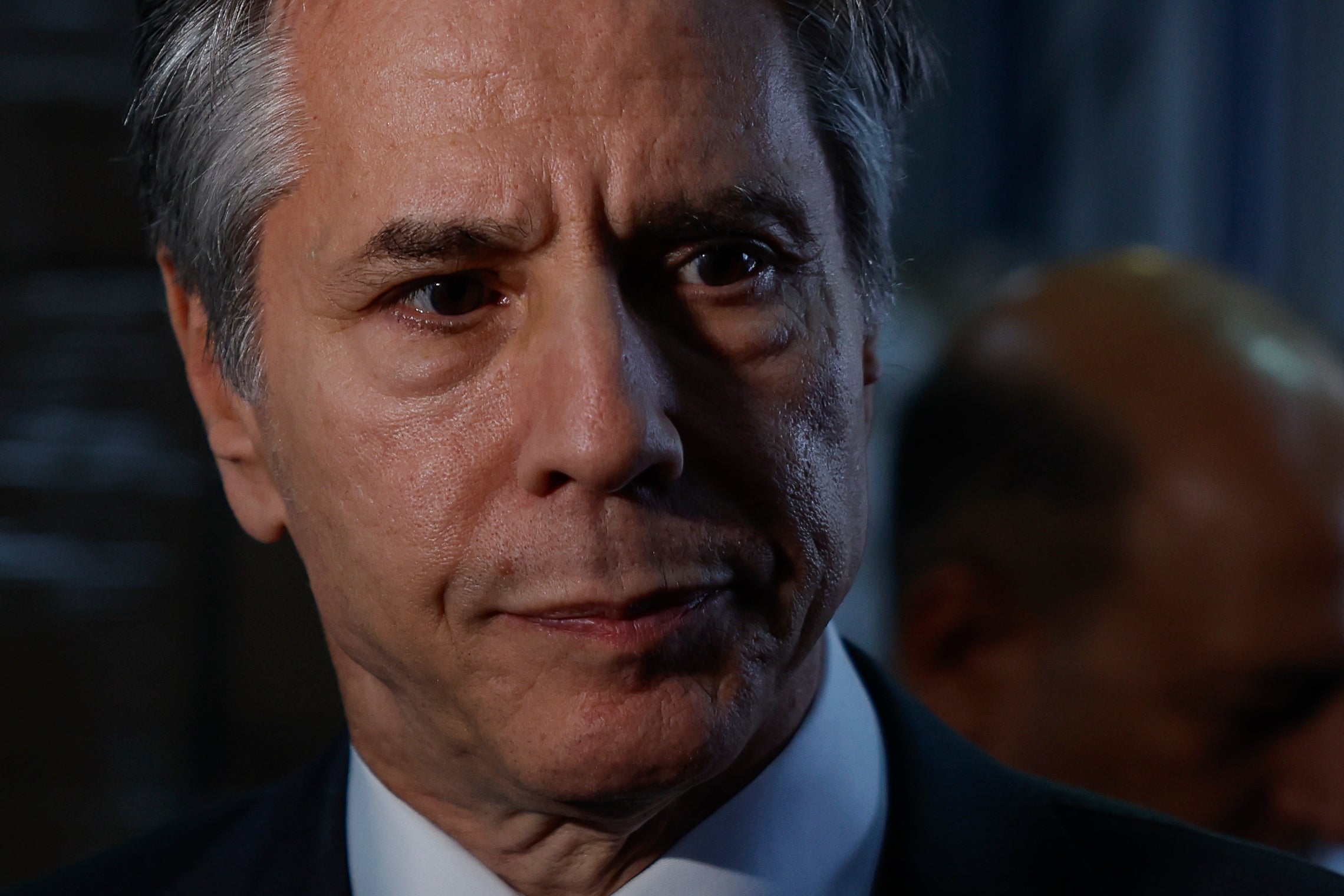Blinken blames TikTok and social media for disrupting Israel’s narrative of war in Gaza
Secretary of state said social media allows history context to ‘get lost’
Your support helps us to tell the story
This election is still a dead heat, according to most polls. In a fight with such wafer-thin margins, we need reporters on the ground talking to the people Trump and Harris are courting. Your support allows us to keep sending journalists to the story.
The Independent is trusted by 27 million Americans from across the entire political spectrum every month. Unlike many other quality news outlets, we choose not to lock you out of our reporting and analysis with paywalls. But quality journalism must still be paid for.
Help us keep bring these critical stories to light. Your support makes all the difference.
Social media sites like TikTok are partly to blame for widespread criticism of Israel’s war effort against Hamas in Gaza, according to US Secretary of State Antony Blinken.
The comments came as part of a conversation at the McCain Institute’s 2024 Sedona Forum in Sedona, Arizona, between Secretary Blinken and US senator Mitt Romney.
The Utah Republican asked the top diplomat why “the PR has been so awful” against Israel since the beginning of the 7 October conflict.

“Why has Hamas disappeared in terms of public perception?” he continued. “An offer is on the table for a ceasefire and yet the world is screaming about Israel.”
Mr Blinken said that part of the reason for that dynamic was a changing media environment, where people no longer all read from the same authoritative news sources and instead learn about current events on chaotic social media feeds.
“Now of course we’re on an intravenous feed of information with new impulses, inputs every millisecond,” Mr Blinken said. “And of course the way this has played out on social media has dominated the narrative. You have a social media ecosystem, environment in which context, history, facts get lost and the emotion, the impact of images dominate. We can’t discount that, but I think it also has a very very challenging effect on the narrative.”
Mr Romney appeared to agree, saying the effect Mr Blinken was describing was why “there was such overwhelming support for us to potentially shut down TikTok.”
The US secretary, at another point in the conversation, also emphasised the “inescapable reality” that Palestinian civilians “continue to suffer grievously.”
“We have to be focused on that and attentive to that.”
The comments echoed a wider narrative that’s been put forth about critics of Israel in the US, particularly on college campuses: that their criticisms don’t stem from the facts of the conflict, and instead are the product of alarming outside influence.
New York mayor Eric Adams recently accused students at universities of falling under the sway of “outside agitators,” though the NYPD has offered little compelling evidence to support that charge.
Protesting students interviewed by The Independent said they had been moved to act by seeing images of destruction and suffering caused by Israel in Gaza, with the full backing of the US.
“You know, when I wake up in the morning and see a video of a parent carrying bits of their child in a plastic bag, that should not be normal, that should not be acceptable,” said Ava Lyon-Sereno, a Columbia student protester.
It’s not just social media where Israel’s war effort has been criticised though.
In March, the UN special rapporteur on human rights in the occupied Palestinian territories argued in a report that there are “reasonable grounds” to conclude Israel has committed acts of genocide in Gaza.
This week, a group of 88 congressional Democrats urged the Biden administration to consider restricting aid to Israel, arguing there’s compelling evidence that the country has stopped humanitarian aid from the US and other countries from reaching Gaza, where civilians are experiencing famine levels of hunger.
“The extent of Israel’s continued restrictions on the entry of aid into Gaza, together with the manner in which it continues to conduct hostilities, may amount to the use of starvation as a method of war, which is a war crime,” UN human rights chief Volker Türk said in a statement in March.
In late April, health authorities in Gaza said so many civilians have been killed, and the country has been so devastated by widespread Israeli bombing, that officials are no longer able to count the dead. At least 34,000 people, mostly civilians, have been killed in Gaza since the conflict began.
Subscribe to Independent Premium to bookmark this article
Want to bookmark your favourite articles and stories to read or reference later? Start your Independent Premium subscription today.

Join our commenting forum
Join thought-provoking conversations, follow other Independent readers and see their replies
Comments